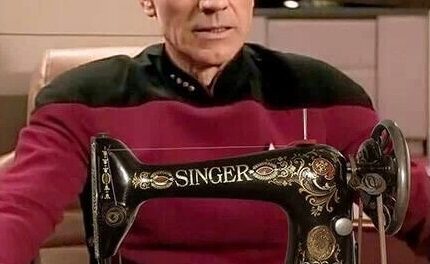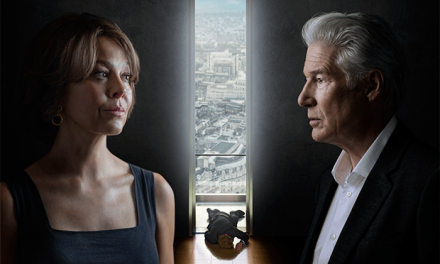Warning: This article is divided into two parts, but both have detailed descriptions of sexual violence in the book and TV series, Rivals.
Author’s Note: This essay was written before the death of Dame Jilly Cooper. I’d like to believe that, as the executive producer of the TV adaptation of Rivals, she was aware of how beloved her novel remains—even as some of its original content required updating for a twenty-first century audience.
In Part One of this essay, I tried to demonstrate how Hulu’s Rivals captures the commonplace misogyny and violence, both real and suggested, of a corporate workplace devoid of sexual harassment laws or a Human Resources office to whom one could complain. The TV series also suggests how this culture pitted women against each other, making them rivals for their male colleagues’ and boss’s favour. Dierdre Kilpatrick (Bryony Hannah), who harbours a not-so-secret crush for handsome news presenter, James Vereker (Oliver Chris), is reminded by a male co-worker that she poses no competition with the luscious young blonde Sarah Stratton (Emily Atack), so she deliberately and cruelly arranges for James’s wife Lizzie to find out about his affair; Dierdre also instigates office rumours about Cameron and utters constant put downs about what she thinks is the limited intelligence of co-worker Daysee Butler (Lara Peake).
It is Daysee’s story arc in Hulu’s Rivals that offers the most significant point of departure from Cooper’s novel. There is no ambiguity about the lack of consent in one particular scene, portrayed in both the novel and the television adaptation, but only the latter treats sexual assault as the violent crime that it is. In the book, Daysee Butler is dismissed in passing as “easily the prettiest girl working at Corinium, but also the stupidest”[i]—a caricature of the “dumb blonde”, complete with tight-fitting animal print sweaters and a giggling demeanour. In contrast, the TV version gives Daysee a far more prominent and nuanced role. Played by Lara Peake, she resembles a young Princess Diana (whose royal virtue in the series is frequently commented on by many characters, as well as viciously mocked by, unsurprisingly, Dierdre), but Daysee’s girlish headbands and bunny sweaters belie a sexually assertive character with a strong work ethic and a sharp mind that surprises many at the Corinium network. Dressed in one such outfit, she catches the eye of Hollywood actor Johnny Friedlaender (Adam Rothenberg) when he arrives for a live on-air interview with Declan O’Hara (Aidan Turner). What begins as a seemingly comedic moment soon afterward is used to reflect on the abuses of male power. The two are shown having sex in the studio’s storage room. When Johnny pauses to offer her a swig of alcohol, Daysee sharply reminds him, “I’m working!” Her co-workers, upon discovering them, show little surprise—just another man falling for Daysee. Yet in the very next scene, she is back at her desk, focused and professional, helping to direct the broadcast.
In Cooper’s novel, however, Daysee is not given agency or a voice. The encounter is described as Friedlaender taking “one look at the ravishing Daysee” before pulling her into his dressing room and locking the door. A nearby security guard, listening in, crudely refers to her as “a piece of ass”.[ii] There is no suggestion of consent or concern—Daysee is treated purely as an object. The television version subverts this narrative. Rather than shaming Daysee for her sexuality, the adaptation uses the encounter to critique Johnny. Initially flattered by his attention, Daysee is visibly hurt in a later scene when, following the interview, Johnny is formally introduced to the Corinium staff. He doesn’t even acknowledge her with a glance or a nod. He has already forgotten their earlier storage room tryst and never even bothered to learn her name, despite having just told a national audience how he regrets having treated another woman in an even worse manner. In doing so, the series exposes how famous men treat women as disposable objects, the consequences of which we witness as the camera lingers on Daysee’s face.
It is not just her male colleagues who underestimate Daysee’s intelligence. In episode five when Cameron (herself the subject of office gossip and taunts) learns that Daysee proposed and choreographed most of the Miss Corinium beauty pageant, she disparagingly comments, “Daysee has a brain, who knew”. Overhearing her colleagues’ laughter, Daysee is shown crestfallen yet again, and her efforts to prove herself as capable are soon after destroyed by a brutal act of sexual violence. On the day of the pageant, Daysee arrives at work, proudly bedecked in a new blue dress—as Dierdre looks her up and down and sneers, “I didn’t know you were a contestant”. Determined to be undeterred, Daysee volunteers to pick up one of the judges, Reverend Penney (David Calder), and alone in the car, she joyfully sings along to Thelma Houston’s “Don’t Leave Me this Way”. During the return journey, Reverend Penney insists she stop the car to admire the spring day. Knowing how important he is to the franchise (he sits on the board of Corinium), she hesitates to refuse his request. He then backs her up against a tree and proceeds to rape her from behind as she very clearly pleads for him to stop. The scene flashes back and forth between the rape and the TV studio where the opening number she choreographed (but is now forced to miss) shows the contestants twirling umbrellas to a jaunty tune. As the parasols all open in colourful unison, the Reverend withdraws from Daysee, and. back in the car, yells “Girl, we’re late”. Not only does he not know her name, but he has managed to blame her for his actions.
Back at the studio, Tony Baddingham sees Daysee’s tear-streaked face and torn, dirtied dress and demands to know who hurt her. His concern, however, quickly shifts to self-interest once he realises the identity of her assailant. Instead of “making him pay”, as he initially promises, Tony pivots. “You certain you didn’t lead him on? You’re such a friendly girl”, he says, implying Daysee may have been complicit. Patting her shoulder (and ignoring how his touch makes her cringe), he advises, “Forget the whole thing ever happened. That’s a good girl”, before instructing his assistant, the more senior Miss Madden (Denise Black), to “tidy her up”. Alone with Daysee, Miss Madden reflects cynically, “All this talk of equal rights—nothing really changes. One rule for them, one for us”. When Daysee asks if she has “spoiled everything”—referring to the pageant she had worked so hard on—Miss Madden reassures her that Reverend Penney “won’t think he’s done anything wrong”.
In Rivals, rape—or the threat of it—is not only a tool men use to put powerful women like Cameron “in their place”, but also a weapon to suppress the rising confidence of junior colleagues like Daysee. At Corinium, she is still seen as nothing more than “such a friendly girl”, ogled and groped by male co-workers and board members alike. Yet Miss Madden subtly suggests that what Daysee has endured could one day be used as leverage. In a poignant scene, we later see Daysee leaving the studio, clutching a plastic bag containing the blue dress she earlier wore with pride—now soiled and torn. The image evokes another infamous blue dress, preserved as evidence following a sexual encounter between a powerful man and his subordinate: President Bill Clinton and Monica Lewinsky.[iii] Perhaps, in a future season of Rivals, Daysee’s dress will be, as Miss Madden advises her, both a “secret and a weapon”.
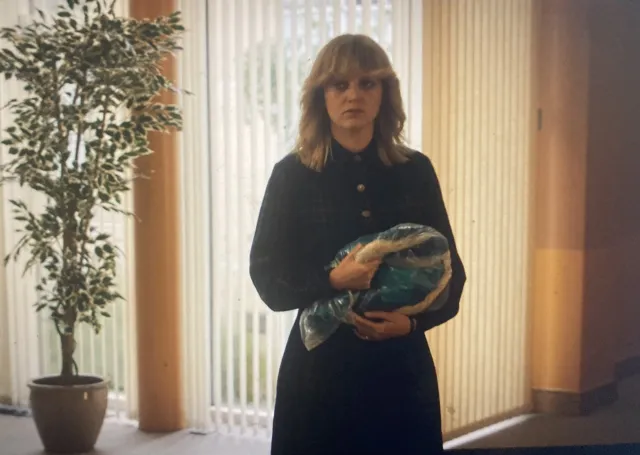
Fig. 2: Daysee preserving her blue dress in Rivals, episode five. Screen grab by Julie Anne Taddeo.
In Cooper’s original novel, the rape storyline unfolds quite differently. Daysee has no role in organising the beauty pageant, and her assault occurs on a different day, after she invites “a very distinguished companion” to lunch in the hopes of impressing him and advancing her career. Initially, readers are not told who this companion is. During the drive back to the studio, her drunk passenger insists she stop the car and then attempts to rape her, but Daysee manages to escape. When Tony sees her torn clothes—this time, a yellow jersey with Donald Duck embroidered on the front—he presses her for the attacker’s name. Daysee hesitates, saying he is too important to the network. Tony, intrigued, hopes it might be James Vereker or Declan so he can use the information for leverage. But when she finally reveals that it was Reverend Penney, his tone changes sharply. Instead of outrage, he offers a warning: “And I hope you’ve learnt your lesson—not to wear such short skirts or tight sweaters to the office in future”. Ultimately, the novel (of which only three pages are devoted to this entire incident) treats Daysee’s trauma as a punchline. Her reaction—“I was convinced he was just interested in my mind”—reads as ironic and comical, rather than pained.[iv] There is no follow-up with Miss Madden, who isn’t present in the scene, and the incident is never mentioned again. In contrast, the TV adaptation acknowledges the long tail of trauma. In the next episode, Daysee’s friend and colleague Seb Burrows (Milo Callaghan) quietly asks if she’s “okay”. She brushes him off, but her expression says otherwise: weeks after the assault, she clearly isn’t “okay”. The series gives her what the novel never does—ongoing emotional depth and a voice that, even when silent, speaks volumes.
And yet, the TV version of Daysee’s assault, while more sensitive than the novel, unfortunately still perpetuates a familiar trope in popular culture: the idea that a woman’s rape is not primarily about her, but about the men around her—who use it as an opportunity to assert their masculinity or seek revenge. When Declan notices Daysee’s tearful eyes and uncharacteristically dowdy plaid dress, he asks what happened and is informed by Miss Madden about the assault. Already drunk and furious with Tony for removing him from his scheduled interview with Prime Minister Thatcher, Declan seizes on the information as further fuel for his anger. During the live broadcast of the Miss Corinium pageant—immediately after Reverend Penney delivers a sermon on morality over beauty—Declan publicly accuses him of hypocrisy and punches him on air. Declan then storms into Tony’s office and confronts him, accusing him of protecting a rapist over his own employee: “And then you parade all those young girls in front of him like a fucking menu”. The scene culminates with Declan smashing Tony’s office window in a fit of impotent anger. As media scholar Lisa Cuklanz has argued, many televised rape storylines serve not to prioritise the trauma of the victim but to contrast a male protagonist’s “enlightened and sensitive approach to rape” with the “outmoded attempts of others”.[v] In Cooper’s original text, Declan and Rupert exchange sexually crude remarks about the pageant contestants, yet in the TV series, Declan is disgusted by the very sexist premise of such an event. Declan’s defence of Daysee may be intended as a moral stance, but it is also clearly motivated by his own frustrations—his emasculation at home due to his wife’s repeated infidelities and his lack of authority at work. In using Daysee’s trauma as a pretext for his own emotional and physical outburst, Declan centres himself rather than her. Daysee, however, refuses to be reduced to a symbol of male grievance. When Declan assumes the role of her champion, she angrily rebukes him: “I don’t need your help”.
Declan’s apt analogy of women as items on a “menu” whom men like Reverend Penney think they can consume without permission echoes an earlier scene in the TV series—one that is oddly framed as complicating, rather than condemning, the budding attraction between Taggie and Rupert (Alex Hassell). As originally written, Taggie is just 17, and although the TV adaptation ages her up to 20, it does little to mitigate the nearly 20-year age gap between her and Rupert, the man we are ostensibly meant to root for as her romantic partner. In episode two, Taggie is hired to cater and serve dinner for the newly rich Freddie (Danny Dyer) and Valerie Jones (Lisa McGrillis). Eager to impress her upper-class guests, Valerie insists Taggie wear a uniform that resembles a French maid’s costume, barely covering her backside. As Taggie proudly presents the dessert—a towering Pavlova—the guests applaud, but after taking his portion, Rupert reaches under Taggie’s dress, prompting her to drop the dessert onto Cameron’s designer outfit. Humiliated and upset, Taggie flees the party. Rupert chases after her, dismissively saying, “I thought you’d like it … thought you were grown-up enough to play”. He repeats this justification to Lizzie, who rebukes him, reminding him that Taggie needed the job and had worked hard to impress. What he regards as harmless flirtation Lizzie calls out for what it is: “crass” and “lecherous”. She also delivers one of the series’ sharpest critiques of its male characters: “Women aren’t just a buffet, laid out for you to snack on”.
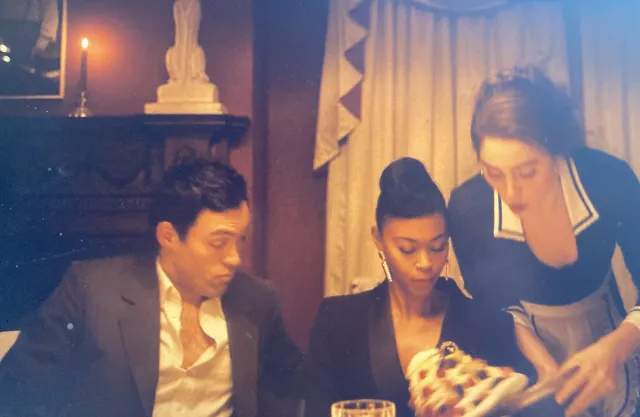
Fig. 3: Rupert reaches under Taggie’s dress at the Jones’s dinner party in Rivals, episode 2. Screen grab by Julie Anne Taddeo.
Sadly, that is precisely how most men in Rivals do treat women. Sarah Stratton—who has used her youth and beauty to marry an MP and build a television career—eventually recognises this herself in episode eight, remarking bitterly that women are treated worse than toothpaste: “They just squeeze us out”. This is a rare incidence of self-awareness for Sarah, who, despite her calculated choices, is repeatedly discarded by the powerful men she relies on. She shares this reflection with Lizzie, who is fully aware of Sarah’s affair with her husband James (thanks to Dierdre, as noted earlier). Yet in a striking moment of solidarity—absent from Cooper’s novel—Lizzie responds not with jealousy but with empathy, telling Sarah it is time for women to put themselves first. This female alliance stands in stark contrast to the novel, where women are consistently pitted against each other, rivals for male attention, and encouraged to weaponise their beauty and sexuality to get ahead. The series adaptation, while still deeply enmeshed in its 1980s setting, gestures toward a more contemporary feminist consciousness—however uneven its execution.
Conclusion
As I have demonstrated elsewhere (see my earlier essay on Poldark for WFTHN), sexual violence is a recurring theme in television period dramas.[vi] As a genre largely consumed by women, these dramas often reflect the lived realities of women, both past and present. Although laws have changed since the 1980s setting and original publication of Jilly Cooper’s novel, sexism and misogyny remain deeply embedded in women’s everyday experiences, at work and at home. The #MeToo movement, which gave survivors of sexual abuse and harassment a powerful platform and held figures like Harvey Weinstein accountable, has already seen a backlash in both the US and UK. A 2018 study published in the Harvard Business Review found that many male employers, when surveyed, admitted they were now more reluctant to hire women—especially attractive ones—regardless of their professional qualifications.[vii] In the UK, a 2023 report titled Safe to Speak Up? Sexual Harassment in the UK Film and Television Industry Since #MeToo revealed that the industry had, paradoxically, become more dangerous for women as victims felt increased pressure to disclose abuse, but doing so often led to retaliation or professional marginalisation.[viii] The setting of Rivals—the very same industry but in the 1980s—revisits a time when sexual harassment was barely acknowledged, and rape was frequently excused as part of a “boys will be boys” culture. The findings of the 2023 report thus make this depiction in Rivals feel both timely and disturbingly timeless.
Because Rivals is positioned as a bonkbuster—a genre known for its outrageous characters, steamy sex scenes, and glamorous settings—TV audiences might enter with lowered critical expectations. The men are rakes (Rupert, for example, is often shown in the mode of a Regency romance hero, on horseback, in a loose white shirt and tight trousers), and the female gaze is deliberately centred. From the opening scene in the toilet of the Concorde jet—Rupert’s bare backside thrusting into a moaning woman, one red stiletto heel her only visible detail—male nudity is consistently served up for the largely female audience that enjoys period television. Yet Rivals does more than titillate. While the bonkbuster celebrates romance and passion, the series also performs important cultural work by highlighting the continuity between our pre- and post-#MeToo worlds.
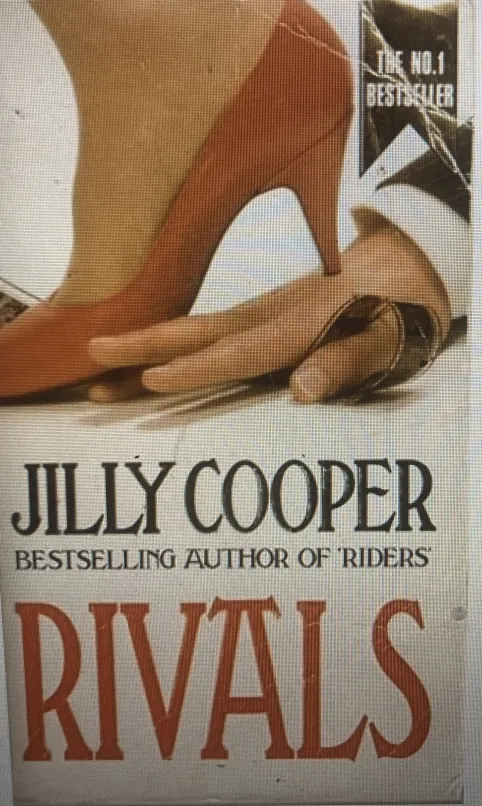
Fig. 4: Original book cover for Rivals, 1988 edition, photo by Julie Anne Taddeo.
Much of what unfolds in the eight-episode adaptation diverges from Cooper’s original glorification of “bad boy” behaviour. Rupert, for instance, is no longer excused for his entitlement and recklessness. Instead, he is told by Taggie to “stop doing things that you’re sorry for”. Similarly, the women of Rivals come to realise that they deserve better than to be treated as a “buffet” for men to devour—without permission and certainly without violence. Novelist Lauren Henderson has reflected, “The bonkbuster came from a time when it felt like anything was possible for women. But then we found out that everything wasn’t possible, and things weren’t going to get better”.[ix] Even at its peak popularity in the 1980s, this genre—which supposedly celebrated strong women—was full of contradictions. The original edition of Cooper’s book is emblazoned with a woman’s red stiletto heel piercing a man’s hand, suggesting a battle of the sexes in which the woman prevails, but as this essay has argued, quite the reverse is the case in the novel. In a 2024 Author’s Note to Rivals, Cooper (who is also an executive producer of the TV adaptation) acknowledges, “If #MeToo has shown us anything, it is that sex is still being weaponized in the workplace”.[x] Given her earlier statement about women (including herself) being drawn to dominant men, it remains unclear whether she criticises this persistent problem or accepts it as inevitable. While coercive sex, rape, domestic violence, and victim blaming—normalised, even trivialised, in Cooper’s original novel—are explicitly challenged in the TV adaptation, these issues still seem far from joining other relics of the past, like the Concorde jet.
Julie Anne Taddeo is Research Professor of History at University of Maryland, USA. She is the co-author (with Katherine Byrne) of Rape in Period Drama Television: Consent, Myth, and Fantasy (2022). Her other publications include articles and edited collections on such topics as Steampunk; the British author Catherine Cookson; and period drama television and masculinity. Her current projects include an edited collection on the portrayal of the British National Health Service on television and a podcast series, with Katherine Byrne, on period drama television
References
[i] Ibid, p. 129.
[ii] Ibid, p. 133.
[iii] “Monica Lewinsky Scandal,” History, https://www.history.com/articles/monica-lewinsky, accessed 26 June 2025.
[iv] Jilly Cooper, Rivals, Kindle edition, 2024, pp. 289-291.
[v] Lisa M. Cuklanz, Rape on Prime Time: Television, Masculinity, and Sexual Violence (Philadelphia: University of Pennsylvania Press, 1999), p. 63.
[vi] See Katherine Byrne and Julie Anne Taddeo, Rape in Period Drama Television:Consent, Myth, and Fantasy (London: Lexington Books, 2022).
[vii] Tim Bower, “The #MeToo Backlash,” Harvard Business Review, September-October 2019, https://hbr.org/2019/09/the-metoo-backlash, accessed 25 June 2025.
[viii] David, Batty, “Harassment victims in UK film and TV face backlash after #MeToo, study finds,” The Guardian, 23 October 2023, https://www.theguardian.com/world/2023/oct/23/harassment-victims-in-film-and-TV-face-backlash-after-metoo-study-finds, accessed 25 June 2025.
[ix] Lauren Henderson penned bonkbusters under the pen name Rebecca Chance. Quoted in David Barnett, “Trash, bang, wallop: How the bonkbuster novel came to define a generation for millions of women,” Independent, 17 August, 2019, https://www.independent.co.uk/independentpremium/long-reads/bonkbuster-novel-literature-books-1980s-jackie-collins-a9006446.html, accessed 23 June 2025.
[x] Jilly Cooper, “Author’s Note,” Rivals (New York: Forever, 2024), Kindle version, p. iii.



